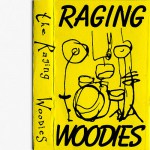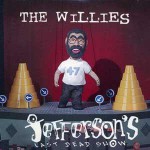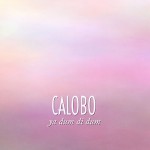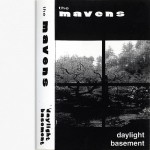 Haymaker
Haymaker
Advance Tracks
Self-Produced
Here’s one of those little perks (there aren’t many of them, rest assured) that comes by way of the magnitude of the position of ‘rock critic’. Mere plebeians do not have access to the starling engines which ceaselessly coil beneath the shiny exterior of the gleaming music industry machine. That’s why I have this recording and you don’t.
Nor are you likely to have it anytime soon. See, the major and minor label feeding frenzy over Haymaker has nearly reached critical mass. How could such a thing happen? Well, a woman named Julie Gordon, a known industry sage, publishes an insider tipsheet called Gordon’s Flash (pretty funny eh? Get it? Flash Gordon? Gordon’s Flash? See how she got in such a powerful position?) every couple of weeks; just for labels and other interested rich parties. Her rave review of this very recording, had every A&R guy in the nation getting itchy palms. Hey, Haymaker is a commodity babe, a very hot property. What am I bid?
For that reason, you’re not likely to hear these seven tracks until they appear on some major label extravaganza. By then, Haymaker will have blown out of Mudville and you’ll have forgotten all about the fact that they’re local boys. They’ll belong to the world.
Not that they don’t deserve success. Haymaker have come up through the local ranks, honing their user-friendly alternative country sound, while developing the most rabidly loyal fan base Portland has ever seen. Ms. Gordon lumps Haymaker in with Wilco, the Jayhawks and the Bottlerockets— which is fair, as far as it goes. But the obvious West Coast flavor that the band impart to their music, recall the work of Neil Young, Creedence Clearwater Revival, Little Feat and especially the Eagles.
Haymaker don’t so much sound like the Eagles of the 90s. They are the Eagles of the 90s. If this band doesn’t inspire you to “Take It Easy” with their “Peaceful Easy Feeling,” then perhaps you need another “Tequila Sunrise.”
The musical similarities are not that direct. But if you don’t get the sensation from a Haymaker song, that you’re sitting in front of a campfire with a bottle of Wild Turkey in yer hand, then by God, you’re not an American. And you don’t deserve that big ol’ four-wheel drive pick-up truck, which is every American’s mandated birthright as a citizen and consumer.
The obvious hit here is “Ride,” which mirrors Creedence’s “Who’ll Stop The Rain,” while capturing the feel of the Eagles’ “Take It Easy.” Robert Trujillo’s winsome harmonica wails in the background with Kevin Jerde’s chiming lead guitar, as Steve Lockwood spins a tale of loneliness and desolation— “Just outside of Madras [not Lodi]/ On a mountain’s edge/I hear the siren growing/I hear that song in my head.” Jerde’s Neil Young-inspired solo provides a spark of fire to the middle section.
The straight-ahead rocker, “Killer Of Men,” fits that Jayhawks comparison. Racing down the musical highway, sparks flying off the tailpipe— it’s a high-speed chase of a tune. “Dream” is another winning number. Cello V’ec’s orange blossom violin moans mournfully, as Lockwood hops the chugging freight train rhythm that drummer Rick Barry and bassist Jeff Farnand provide. Echoes of Hank Williams reverberate in Lockwood’s forlorn vocal. Michael Stipe exerts influence as well. The song undergoes several changes before falling into a pretty middle section in 3/4 time, where Jerde and V’ec join for a sweet duet. Jerde’s solo in the finale calls to mind Duane Allman
Homilies such as “yesterday is gone” and “Rome wasn’t built in a day,” betray one of the band’s few weaknesses— Lockwood’s occasional reliance on cliché. It would seem that a few more rounds in the boxing match of life will probably remedy that shortcoming. “Home” is in Wilco’s ballpark— or, perhaps more precisely, in Uncle Tupelo’s realm: a moody little ballad, sparsely decorated with droning electric guitars. Midway through, the song builds in intensity, resolving on Jerde’s warm, gritty solo. Working off a Youngish riff, “Pretend” unwinds slowly, as Lockwood unravels a bitter litany of spleen. “Last week, got my pick-up truck and I got the fuck out of here.” Steve’s reedy whine somewhat resembles that of Soul Asylum’s Dave Pirner. The same principles hold true in the moody corn mash of “Dime.”
Jerde contributes a sweetly vibrato laden guitar over Lockwood’s solitary acoustic strumming on the sparse “Daytime Loser.” Pure country in the purest sense. Simple. Direct. Unadorned and honest.
For all the party vibe of their live shows, Haymaker’s recorded personality can often be a little solemn and sullen. This too, fits in well with the essential country approach the band take. But Haymaker do not create country/western music, they produce western country music; and therein the difference lies. For, that was what made Creedence Clearwater and the Eagles successful twenty years ago. This is the 90s hoe-down for 90’s consumers.
Like Wild Turkey, Haymaker’s music has a bit of a bite going down. But after awhile, you get all warm inside. Eventually, you just fall right over. Haymaker is an appropriate name for this band, There’s more hay here than there is in the whole damn Willamette Valley. And the band packs a pretty mean left-hook. And very soon they are going to make some record company a lot of hay. Yahoo!
 Higher Ground
Higher Ground
Better View
Self-Produced
Higher Ground are another band who have paid their dues on the local circuit for several years, finding their own sound in that time. That sound, infused with elements of the Allman’s, The Doobies, Little Feat and the Dead, combines components as disparate as funk and bluegrass to meld a cheery musical confection. Appealing enough to whet the curiosity of Dead drummer Mickey Hart— who has begun his own label in the months since Jer Bear shunted this mortal coil.
Speaking of Jer Bear, acoustic guitarist David Kronenberg invokes his holy vocal ghost on “Timing.” The whole arrangement feels like the Dead circa American Beauty or Workingman’s Dead, with a little early Doobies circulating through. “Meant To Be” works off a Bo Diddley beat and Kronenberg’s jangling acoustic guitar. Alan Glickenhaus interjects skilled violin themes in the background of the verses and some tasty licks through the solo.
The instrumental “Rip Tide” showcases Glickenhaus’ lively David Grisman-influenced mandolin work. Bassist Charles Masi shines with a well-conceived part. Josh Briggs provides the percussive percussion with energetic, yet subdued drums. Versatility is the middle name of both Glickenhaus and Higher Ground. Check out Alan’s wild banjo riff to “Better View”— equal parts Earl Scruggs and Bela Fleck. Strange. Yet curiously refreshing.
Lyricist Karl Heimer (the equivalent of Robert Hunter for Higher Ground, one would surmise) contributes a lively discourse on the ennui of everyday, mystically intermingled with the concept of quantum physics on “Butterfly Tar.” While this is no doctoral thesis, it does stand outside the stream of yer typical song lyric. This is delivered over some weird mandolin funk you ain’t never heard before.
“Irish Smile,” commemorates the life of slain Belmont’s Inn waitress Sheilagh Conroy, who contributed so much of herself to the local music scene. This touchingly sad, pretty song is a fitting tribute to her memory. The band changes pace with “Billy,” a Chuck Berry flavored tune, nicely enhanced by Glickenhaus’ banjo. Glickenhaus turns vocalist on “Bridges,” lending his creaky baritone to the mix. On “Wild Fire,” Alan unleashes, violin, mandolin and banjo in a multi-tracked bluegrass frenzy of an instrumental. And he finishes up with “Stand For Nothing,” lending a more country flair than Kronenberg— in the vocal department.
This is a great representation of a versatile band, who mix musical authenticity with enough instrumental curve-balls to insure the possibility of a perfect game. Though Higherground are strong as songwriters, their material lacks a signature song— such as a “Truckin’, or “Uncle John’s Band” by which to render a musical identity. There is every reason to expect that the band will rise above that shortcoming forthwith. In the meantime, there is a lot here about which to get excited.
 Ragin’ Woodies
Ragin’ Woodies
Ragin’ Woodies
Self-Produced
Here’s a tough and intense three-piece with an unique sound whom have gone largely ignored by the ever erudite local press. This is unfathomable, yet sadly true. Because the Woodies can pin yer ears to the wall at a hundred yards out, without even breaking a sweat.
It’s pretty simple really. One of the best singer/songwriters in the local alternascene, meets up with a killer rhythm section and bingo. You could light the city with this sort of energy.
The singer/songwriter is Jeff Groves, who came to Portland from Austin, where he played with a band called Big Car. That band put out a single album on Irving Azoff’s label, before going down in flames. Since migrating to Rainytown, Jeff has demonstrated a propensity on the amplified acoustic guitar, developing his own idiosyncratic style; that seems comprised of equal parts Leo Kotke, Pete Townsend, Elvis Costello and Doc Watson. Yow!
Behind him, Don Corey provides the solid foundation on the bass, acting as fulcrum between Jeff’s flailing guitar and Todd Bishop’s incredible drumwork. Bishop is an artist at his kit. Few local drummers in the rock contingent can compete with Bishop’s mastery. Versatile, dynamic and powerful, Todd can move from playing soft, jazz-tinged snare interludes to flapping yer eardrums with his kick and snare shots. As deft as a panther. It’s as if he is an orchestral drummer with rock chops. A major monster hybrid of the highest order. Bring ear plugs. Keith Moon meets Bill Bruford.
This batch brings us four Groves-penned numbers, varying in intensity from lissome to mercurial. You can hear Elvis C. in “Lily-White Boy.” And Evan Dando. But you hear something else. That’s Jeff, who has a strong voice of his own and he knows how to use it; whether slidin’ through the verse like an early John Hiatt or slashing through the chorus as if there’s a shard of glass lodged in his throat.
“Brains” begins pensively, before launching into an explosively diffuse exposition; wherein Bishop auditions a few of his percussive textures and colors for your listening awe and amazement. Hey, and check out Groves’ gut-wrenching cry in the middle section. Corey intimates Chris Squire in the extended fade. A heady mix to be sure.
There is a certain Tom Waits-like sensibility that Groves lends to his vocal on “Happy.” Wobbling uncertainly through the verses, he erupts in the chorus, almost sounding like an early Peter Gabriel, oddly enough. There’s a combination for you.
“Gotta Move” showcases Bishop’s Moonish reckless abandon and muscular approach while Groves writhes over the top like a snake caught in a flashflood.
There’s style and fashion. And a lot of bands have that closet covered. But when it comes to raw, unbridled rock, this band is in a class by itself; and it’s all class, all the time. Pay attention to the Ragin’ Woodies. They’re going to move you, one way or another— you can be assured of that.
 The Willies
The Willies
Jefferson’s Last Dead Show
Ten Ton Records
Concept album? Kabalistic rumination on the significance of the number 47? Vaudevillian psychodrama? All of the above? All of that; and more tracks than anyone ever thought to jam onto a CD. Forty seven to be precise. There’s that number again.
And actually, seventeen of those tracks are songs. The other thirty… call them what you will. Odd comes readily to mind. Which is what one would expect from arcane popsters such as the Willies.
Of the, ahem, sound collages— the one extending from track 27 through 33, is particularly arresting, and often very funny; as these things go. But the songs are very strong. Smart, witty and droll. Think of David Byrne fronting XTC. No. It’s weirder than that.
Take “Uncle Bliss,” for example. It’s moving along fine, a snappy little rocker. Vocalist/ rhythm guitarist Eric Levine seems concerned about some important psychological schism, while aided harmonically by guest vocalist Tina Purdy. Then an apparent psychotic interlude overcomes Eric. He quickly recovers, to finish the song nicely. But sometimes you just have to worry about the guy’s safety.
“Monkey From Another Planet,” sounds like Zappa and the B-52s; which is really scary when you think about it. “Soft” is pretty straight ahead, accented by Collin Colebank’s intricate drum work and Yani Durant’s (of Loud Sistah) inventive trumpet work. But here, as in all of Eric’s songs, if one digs under the surface, are the deeply coiled machinations of a severely twisted individual. Thank God he’s a school teacher.
Consult the scenario of “Hippopotamus’ Wife,” for further elucidation. Big issues. Here Durant is joined by David Szczechowicz on trombone to form a crazy bolero of a horn section, while guitarist S2 Carpenter grinds away over bassist John Bruce’s loping figures. Guest, Bela Balogh lays a Grapelli-esque violin part over the manic samba of the rhythm section on “List Of Things;” a very strange unrequited love song in the Norman Bates school of romance. Syd Barrett has nothing on Eric Levine. Witness the prayer section of reason number two, tastefully augmented by the shimmering arpeggios of an extremely cheesy keyboard. Wow!
Say ya want some hard chargin’ cornpone? Dial in the hoe-down on “Cookie Truck.” Pat Kramer sits in on banjo, but fails to slow that freight train down. The tune crunches severely. Carpenter uncorks a jagged solo to pull the song out of country country all together.
The Monticello Lounge section, “reveling in the dulcet tones of Butt Muscle” covers the songs “All The Beer In Canada” and “Purge” (perhaps “Binge” and “Purge” would have been more appropriate) and the subsequent sound collage. “Canada” features some subtly nifty fretwork by S2, particularly his whammy layers, which fall away like drunken frogs beneath the surface of the arrangement. “Purge,” with its memorable chorus and timeless psychedelic interlude, segués into Bruce’s driving bassline. One of the hits of the litter. The aforementioned collage between tracks 27 and 33 ensues. A little power trip through the synapses.
“Dysfunctional Hippie Chick” rides upon a badass riff with funk underpinnings, while Durant bebops on the turns. Utilizing a prototypical XTC riff, “Halley’s Comet” builds slowly in intensity, then drifts into another prototypical XTC segment of rolling triplets between the bass and guitar, before moving into the powerful chorus. Another strong cut.
A catchy soul progression motivates “Shutters.” Hummingfish’s Deb Talan joins Eric for a fast moving rap through the verses and an oddball chorus that sticks like chewing gum in the hair of the mind. “Party On The Farm” is everything one might expect from the title, and more.
The Willies are awfully slick. And the fact that they were highly touted by Willamette Weak a few years back probably doesn’t help their credibility much either. Add intelligence and a lot of chops and it’s blatantly obvious that theirs is an uphill struggle. But the band seem up to the challenge.
As for Jefferson and his last Dead show, the story is completely true and totally in keeping with the Willies’ penchant for esoteric minutiae. Let’s just say that Jefferson was amazingly ahead of the game.
 Calobo
Calobo
Ya Dum Di Dum
Self-Produced
Oddly enough, every band reviewed this month is an Eastside band. You know the Eastside, that’s the half of the town that was largely ignored by the doyennes of NXNW. Sure, sure. Logistics are everything. Especially when you’re trying to paint an artificial picture of the Portland music scene to a bunch of out of towners who don’t care anyway.
The Eastside Sound, marked specifically by, but not limited to, the textures of acoustic guitar accompaniment, has been in full swing for nearly four years since Two Louies first coined the term in January of 1992. That sound was initially embraced by the Laurelthirst and Mark’s Hawthorne Pub. East Ave Tav, Belmont’s Inn and Mt. Tabor Pub quickly followed suit, as did the Egyptian Room and Biddy McGraw’s (which used to be Mark’s). A handful of the exponents and a couple of those venues were deemed suitable as showcases for NXNW. Most were skipped over in order to put music in places that had not been especially supportive of the local scene prior to the Austin dust storm. Somehow that seems unreal and unfair. But hey, that’s show business.
Anyway, Calobo was one of the deserved and lucky Eastside bands to make the fray. The fact that their 1994 release Runnin’ In The River was Locals Only’s Top selling recording for all of 1994 and most of 1995, no doubt aided the talent selection committee in the decision making process. Those impressive sales statistics were generated by a band that has managed to ferret out for themselves a distinctive sound among the many other local purveyors of laid-back alternative country music.
The difference in Calobo’s approach is attributable to two women— vocalist Michele Van Steenburgh and pianist Jenny Conlee. Michele combines and alternates with the other two singers, acoustic guitarist/songwriter David Andrews and acoustic guitarist/ songwriter Caleb Klauder. The three of them blend for tight, seamless harmonies throughout the eleven tracks presented here.
“Feel All The Way” features Andrews’ smoky baritone in the lead with Klauder and Van Steenburgh lending the harmonies. The percussive effect of two acoustic guitars is enhanced by Brian Bucolo’s punchy drumwork and Nate Query’s syncopated walking bass. Conlee’s piano adds the Chuck Leavell/ Bruce Hornsby ring here, as in “Down By The River,” penned by lead guitarist Kenneth Erlick and sweetly sung by Michele. Her warm contralto swims in the bubbly mix (both Calobo and Higher Ground recorded their latest efforts at Falcon Studios).
Klauder leads the band through the finger-picking pluck of “Share The Light;” a sunny, fuzzy, happy little tune. Again, crystalline harmonies in the chorus add further brightness. Andrews’ “Tomorrow and Yesterday” hinges on an Allmans-y feel and the band’s unceasingly indomitable optimism. Erlick contributes a succinct solo in the middle that has Dickie written all over it. Reminiscent of the Marshall Tucker Band too.
Even the cloudy songs are pretty damn sunny. Check out “Rainy Day,” a lilting ballad. The slow, shuffle rhythm, allows for tons o’ sonic space. Conlee’s piano raindrops blow across the cornfield soundscape. Erlick executes a tasty and restrained solo, joined in a duet by one of the acoustic guitars. Pretty and simple. Pretty simple. “Romeo Story” is Little Featish in composition. Conlee’s Payne-like piano filigrees circle around Bucolo’s syncopated drums (downbeat on three). Query and Erlick hold down a variation of a reggae feel, to lend the cut a quirky charm.
“Make Me Happy” actually introduces a few Neil Young-y minor chords into the stew, adding a welcome change of pace. However “34 Roses” returns to form, turning on the curious lyric “Why can’t you move for me when you can move for Moses/Open your heart and your eyes will see beautiful roses/ 34 roses.” Who’s Moses? Is this some sort of Old Testament dialectic? And why thirty-four roses and not forty-seven? Ah well, these are the unanswered questions that come with the territory, one supposes.
“Changing,” with its dramatic chord progression and Conlee’s gorgeous piano fills, is perhaps the most satisfying number of the set. The incessant optimism is set aside for a mood of thoughtful introspection. This song demonstrates a greater depth on Calobo’s part. Erlick’s solo is especially touching. Here again an acoustic guitar duets with Erlick’s electric guitar in the second half of the solo, creating an poignant atmosphere.
“Love Can Move A Mountain,” hits that Little Feat lope again, augmented by Conlee’s tasty organ work, mirroring Erlick’s Garcia-esque noodling. A pleasant little ditty. “Mozambique” is a blusey/ gospel number in the Taj Mahal vein, but the backing vocal harmonies are cleverly taken from the Beatles’ “Octopus’ Garden.” It goes by fast, they only do it once. You have to listen close.
Calobo are like the Prozac of local rock. They’re going to wash you out of that depression one way or another. While their attitude seems a bit unrealistic in these troubled times, one cannot deny their commitment to it; nor fault them for feeling the way they do. The band is generating something to which a lot of local music fans are responding.
A positive outlook and a snappy, well-turned delivery seem to be working for a lot of bands these days. It’s like anti-grunge. Well, you have to do something with all those flannel shirts. Calobo have returned flannel to its proper station as uniform for the rural working class. For that they are to be commended.
 The Mavens
The Mavens
Daylight Basement
Self-Produced
Here’s a duo that throws a little spin on that patent Eastside Sound. Oh the Doobies-like jangle is in there, to be sure. But these boys sing like Simon and Garfunkel. Mavens Josh Millman and Michael Page divide sides on this recording, Josh wrote all the songs on side one; Michael wrote them all on side two.
One of the Mavens sounds very much like a young Paul Simon. The reedy, adenoidal voice on Millman’s “Alright, ” evokes memories of “Kodachrome” and “Me And Julio Down By The Schoolyard.” The other Maven’s high, soft harmonies play the perfect foil. “Never Meant To Say Goodbye,” recalls Poco and Brewer and Shipley from those long ago days when music such as this was last popular. Well, these are the days of the “unplugged” superstar. Given that revival, this material fits right in.
The moody, ethereal “Shining Through” calls to mind the Beatles, Bowie in the ‘Major Tom’ period or Crowded House, in its understated majesty. Sparse, yet lush. Very pretty.
“Voices Inside” gives the Rembrandts a run for their money, but the harmonies are straight out of “Hazy Shade Of Winter.” And “Everything In Between” utilizes a plaintive Neil Young-like harmonica to add a touch of wistfulness to the sentiment in the lyrics.
Michael Page comes off like Paul Anka doing Frank Sinatra on “Love You To Death.” The highly stylized Big Band synth arrangement is the perfect complement to the song. The Daddies could do a great version of this song. The Mavens’ version is all camp, but very well delineated all the same. Right out of some Pulp Fiction alternative universe. Trés cool. A standard. A classic.
With “Back In Dublin,” it becomes clear that Page has studied the Beatles’ body of work with a magnifying glass. McCartney’s “Oh Darlin'” serves as the template here. But practically all of Abbey Road is crammed into this one cut. A real achievement.
“High Time” is “Me and Julio…” Except for a few uncharacteristic Garcia flavored guitar licks and the tasty guitar solo in the middle. “My Backyard Wildflower” is more fun. Uptempo, goodtime and full of original hues and shades. The permutations that the song undergoes in the final half is ambitious in its conception and deft in its execution.
Both of these guys are uncommonly talented songwriters. And the level of production values they attain with this basement recording are matched only by Millman and Page’s ability to use them. The Mavens dignify themselves as being fine craftsmen of catchy songs of significance; and a singing duo of ready identification. This is really good stuff.
